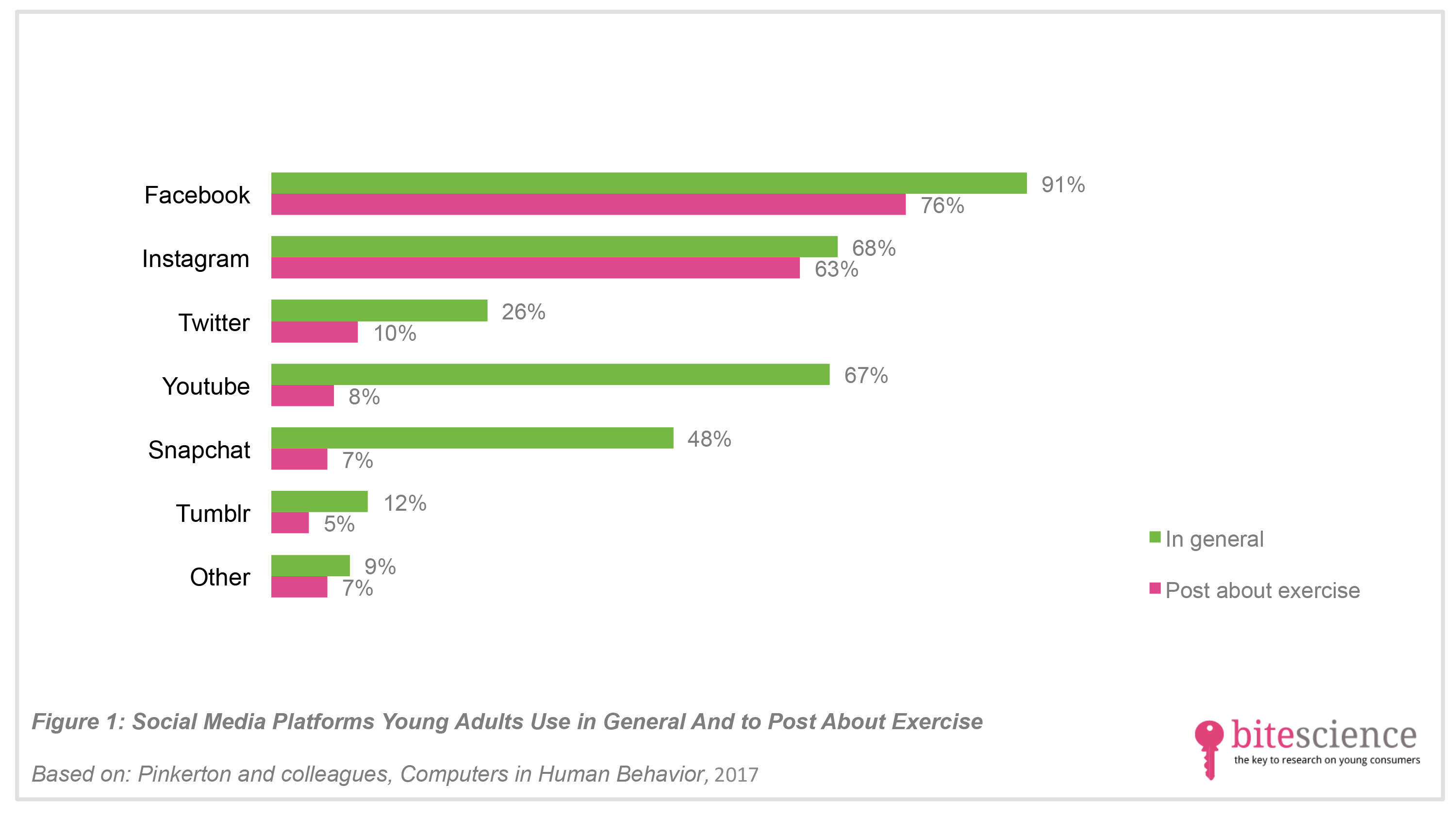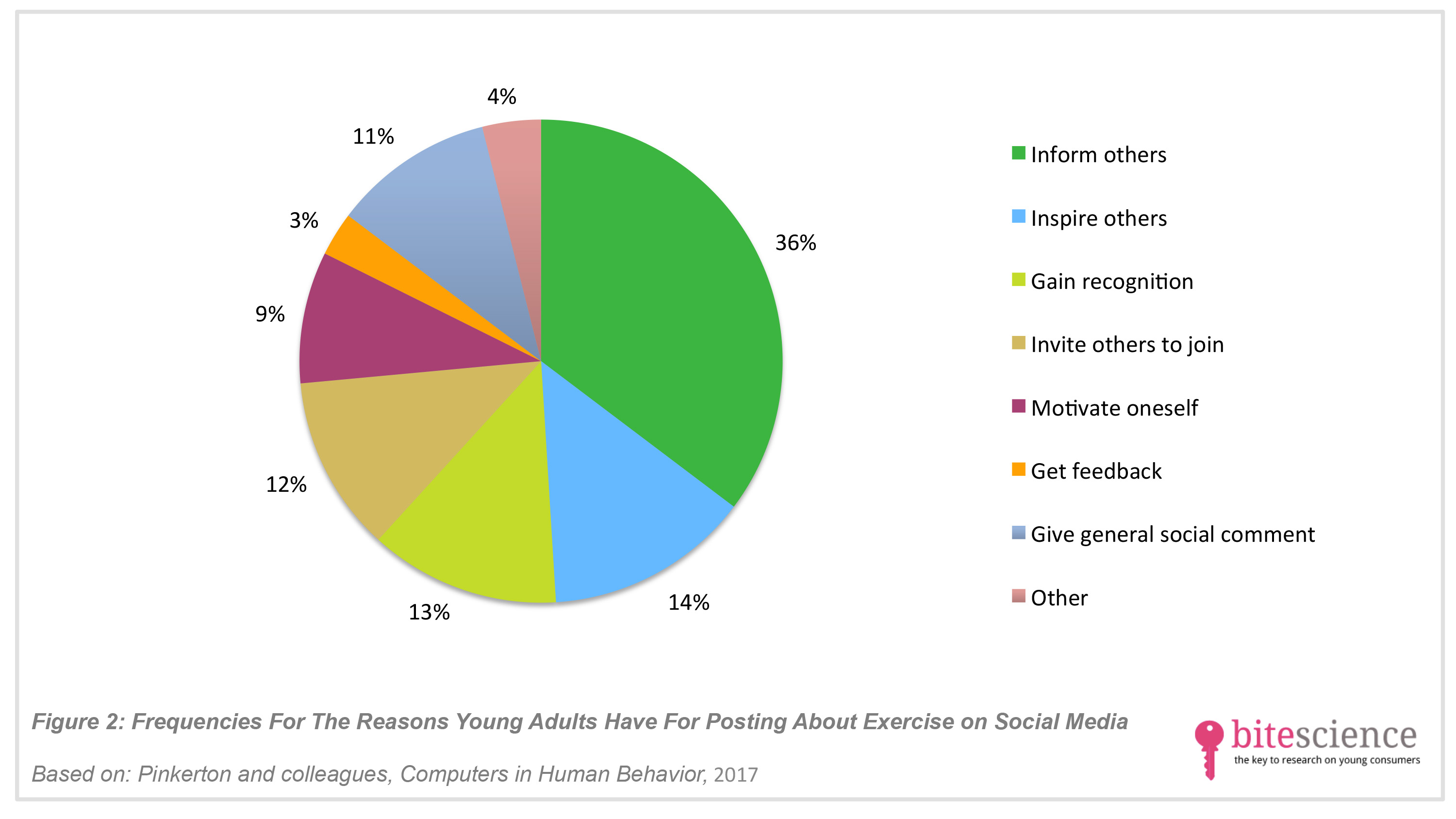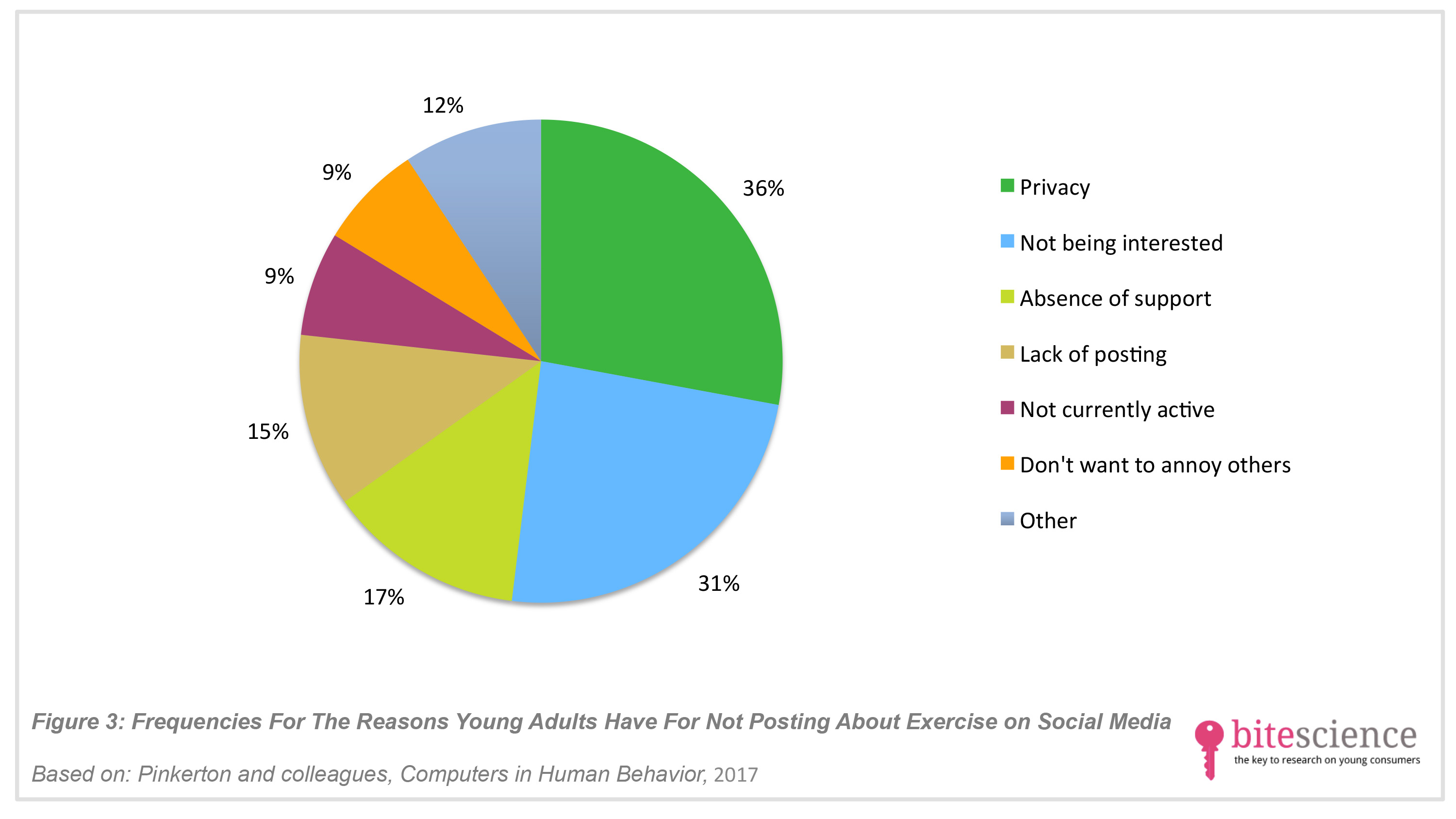
Posting About Exercise: Why Do (and Don’t) Young Adults Do it?
For young people, social media can serve as a way to share daily experiences, including healthy behaviors. “Fit communities”, online communities of young adults who post about exercising and other aspects of a healthy lifestyle, are becoming increasingly common. Until recently, not much was known about the exercise-related social media posts of young adults. A study in Computers in Human Behavior therefore investigated the reasons why young adults do or do not post about exercising on social media and the type of reactions to these posts.
Take aways
- Young adults post about exercise on social media, mainly to:
- keep others in the loop of what they are doing,
- inspire others,
- be appreciated
- invite others to join an activity.
- The most common reasons for young adults not to post about exercise are privacy concerns or a lack of interest to share this kind of information.
- The responses young adults give and receive to exercise-related posts largely reflect social support through encouragement and likes.
- Youth workers and intervention developers could potentially use social media to stimulate social support for healthy behaviors like exercise.
Study information
The question?
Why do (and don’t) young adults post information about exercise on social media and what are the reactions to those posts?
Who?
244 young adults (mean age: 25 years old; 48% females; 43% was White, 23% Hispanic, 14% Asian, and 8% multiracial)
Where?
Not reported
How?
The researchers recruited young adults through the university (e.g., via in-class announcements, being approached at campus) or were asked to participate in the study in another public place. The survey contained questions about social media use (which platforms and the frequency with which they were used), posting about exercise on social media (the reasons for posting/not posting this kind of information), reactions of others’ (how other people reacted to their posts about exercise), their own reactions (how participants themselves reacted to posts of others about exercise), and exercise (the frequency of engaging in physical activities over the past seven days).
Facts and findings
- More than half (60%) of the participants who used social media indicated they also used (one of) these platforms specifically for exercise.
- Some social media platforms were used more frequently than others to share information about exercise, the most popular being Facebook and Instagram (Figure 1).
- Reasons young adults reported for posting about exercise on social media were to (Figure 2):
- inform others (e.g., they shared information about the activities they engaged in to keep friends and family in the loop by posting about exercise progress, results, or achievements);
- inspire others (e.g., by sharing their passion for exercising they wanted to motivate others to make time for their health, reach their goals, or change their perspective on exercise);
- be appreciated (e.g., they posted about exercise to show off accomplishments, get likes, or be recognized for successes);
- invite others to join (e.g., they used social media posts as a way to connect with people with similar exercise interests and hoped to include them in their exercise activities);
- motivate themselves (e.g., they used the posts to hold oneself accountable, monitor their activities, or track progress);
- get feedback (e.g., the posts were meant to get tips and information from specific groups or friends);
- give a general social comment (e.g., posts about exercise were out of habit or just for fun);
- other (e.g., they did not know the reason for posting about exercise).
- Reasons young adults gave for not posting about exercise on social media included (Figure 3):
- privacy (e.g., they did not want to share personal information online);
- not being interested (e.g., they felt that it was unnecessary to share such information);
- absence of support (e.g., they thought others did not want to see that kind of information from them);
- lack of posting (e.g., they did not post much on social media in general);
- not currently active (e.g., they were not exercising at that time and thus did not have anything to share);
- not wanting to annoy others (e.g., they found exercise-related posts of others irritating and did not want to simulate this behavior);
- other (e.g., they did not have time to post about their exercise).
- Young adults reported to receive the following reactions from their social network on their exercise-related posts:
- encouragement and support, such as congratulations on accomplishments (47%);
- likes (40%);
- invites to other activities (4%);
- other, such a no response (10%).
- To exercise-related posts of others, young adults said they responded with:
- encouragement (73%);
- a negative reaction, such as annoyance or a sarcastic or critical comment (19%);
- ignorance, for example if they did not care about these kinds of posts (17%);
- other, such as feeling guilty about not exercising but never leaving a comment (7%).
- Young adults who posted about exercise were more likely to check their social media frequently, be a student, be a female, and to be more physically active than those who did not post about exercise.
- Critical note: The study included a large proportion (68%) of kinesiology students, who have a background in physical activity and exercise. The results might therefore not generalize to all young adults.


